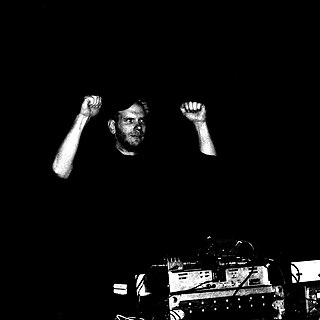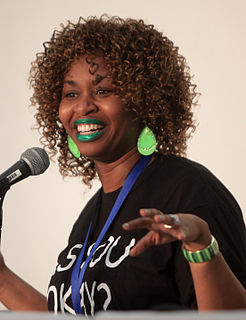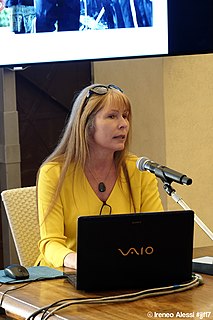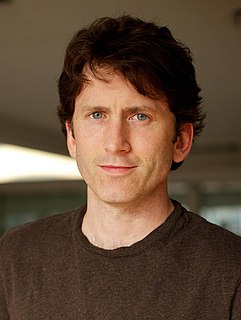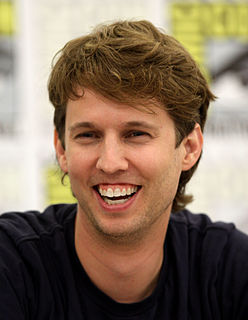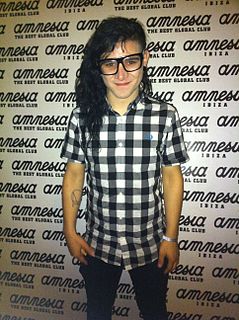Top 1200 Computer Hacking Quotes & Sayings
Explore popular Computer Hacking quotes.
Last updated on April 14, 2025.
It's kind of interesting, because hacking is a skill that could be used for criminal purposes or legitimate purposes, and so even though in the past I was hacking for the curiosity, and the thrill, to get a bite of the forbidden fruit of knowledge, I'm now working in the security field as a public speaker.
Everybody has a hacking capability. And probably every intelligence service is hacking in the territory of other countries. But who exactly does what? That would be a very sensitive piece of information. But it's very difficult to communicate about it. Because nobody wants to admit the scope of what they're doing.
I only use the computer for editing. I don't have an eight-track, otherwise I probably never would have bought a computer. When I first got my Mac, I was exploring its possibilities and had fun with all of the sound hacking software, but I'm not interested in that approach. I toyed with the idea of releasing a 12-inch of all the stuff I did early on but good sense prevented me from doing so.
When I use a direct manipulation system whether for text editing, drawing pictures, or creating and playing games I do think of myself not as using a computer but as doing the particular task. The computer is, in effect, invisible. The point cannot be overstressed: make the computer system invisible.
The Hacker Ethic: Access to computers--and anything which might teach you something about the way the world works--should be unlimited and total.
Always yield to the Hands-On Imperative!
All information should be free.
Mistrust authority--promote decentralization.
Hackers should be judged by their hacking, not bogus criteria such as degrees, age, race, or position.
You can create art and beauty on a computer.
Computers can change your life for the better.
The thing that has disturbed me most about the Russian hacking episode is - and the thing that surprised me most has not been the fact of Russian hacking. The cyber world is full of information gathering, you know, propaganda, et cetera. I have been concerned about the degree to which, in some circles, you've seen people suggest that Vladimir Putin has more credibility than the U.S. government. I think that's something new.
Until I reached my late teens, there was not enough money for luxuries - a holiday, a car, or a computer. I learned how to program a computer, in fact, by reading a book. I used to write down programs in a notebook and a few years later when we were able to buy a computer, I typed in my programs to see if they worked. They did. I was lucky.
What has happened is that we have seen a shift in the past twenty years in the very concept of hacking. So hacking twenty years ago was a neutral, positive concept. Somebody who was a hacker was someone with advanced computer skills, which could expose vulnerabilities and could explain why systems worked well or worked badly and they were generally regarded as an asset. Over the past twenty years, a combination of media and law enforcement has changed the perception of the concept so that it has almost always, if not invariably, a pejorative sense attached.
What, then, is the basic difference between today's computer and an intelligent being? It is that the computer can be made to seebut not to perceive. What matters here is not that the computer is without consciousness but that thus far it is incapable of the spontaneous grasp of pattern--a capacity essential to perception and intelligence.
It is hard to write a simple definition of something as varied as hacking, but I think what these activities have in common is playfulness, cleverness, and exploration. Thus, hacking means exploring the limits of what is possible, in a spirit of playful cleverness. Activities that display playful cleverness have "hack value".
What is the central core of the subject [computer science]? What is it that distinguishes it from the separate subjects with which it is related? What is the linking thread which gathers these disparate branches into a single discipline. My answer to these questions is simple -it is the art of programming a computer. It is the art of designing efficient and elegant methods of getting a computer to solve problems, theoretical or practical, small or large, simple or complex. It is the art of translating this design into an effective and accurate computer program.
I've never been much of a computer guy at least in terms of playing with computers. Actually until I was about 11 I didn't use a computer for preparing for games at all. Now, obviously, the computer is an important tool for me preparing for my games. I analyze when I'm on the computer, either my games or my opponents. But mostly my own.
One can think of any given axiom system as being like a computer with a certain limited amount of memory or processing power. One could switch to a computer with even more storage, but no matter how large an amount of storage space the computer has, there will still exist some tasks that are beyond its ability.
I've never been much of a computer guy at least in terms of playing with computers. Actually until I was about 11 I didn't use a computer for preparing for games at all. I was playing a bit online, was using the chess club mainly. Now, obviously, the computer is an important tool for me preparing for my games.
The attribution of intelligence to machines, crowds of fragments, or other nerd deities obscures more than it illuminates. When people are told that a computer is intelligent, they become prone to changing themselves in order to make the computer appear to work better, instead of demanding that the computer be changed to become more useful.





